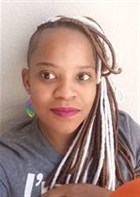Conscious social media users
This takes into account that even though this segment of millennial consumers spend countless time and data engaging on different social media platforms, they don't fully comprehend how their choice of engagement dictates how others perceive them. Online profiles have become an extension of creator's real life personalities. The gap between the real and virtual world has been bridged to ensure a mutual coexistence, so young people continuously share to engage with their followers and to stay relevant.
The days when profiles on Mxit and MySpace were just faceless avatars are in the review mirror because users are now practically snap-chatting their entire lives online, at an instant. Freedom of speech or not, people who don't know you in person will judge you based on what you share on your personal pages and blogs. I am not sure whether users don't care or they just fail to understand the basic necessity to protect their brand image. Many young users blindly treat the so called 'virtual spaces' as their personal diaries, and that's despite the fact that potential employers and or investors could decide not to be associated with your personal brand based on what's reflected on your online history.

If you have a desire to say totally outrageous things about your employer, personal life or other people, why not call a friend because it might amaze you how not-so-virtual social media is. Use it to constructively build a brand that could potentially be profitable, if necessary. I can understand that people come from varying cultural backgrounds which influence their social media usage, but what people share and post is easily regarded as a reflection of their personality since cyberspace no longer exists outside the realm of the 'real world'.
Be careful what you say...
Posting impulsively has been known to infamously end people's careers and damage reputations, so choose your characters wisely. It may be cliché but perception is reality, so it's always best to keep in mind that your image is on the line.
Social media has increasingly become the mainstream as many people turn to it for information, to interact and share their views. There are over 11.8 million (22%) South Africans on Facebook alone (Goldstuck, A 2:2015), but users still don't appreciate that their online activity could fundamentally be 'the straw that broke the camel's back'. As a result of its massive growth and influence within different markets people's social media history have easily become an extension of their curriculum vitaes, what's shared and posted is judged as a true reflection of the user's real life character. With that in mind, what you don't reveal to potential employers at an interview could easily be accessed and brought to light within seconds of typing your name into a search engine.
It never ceases to amaze me when people are quick to say things online they wouldn't have the guts or be comfortable saying in person, as if the idea of a cyberspace exempts them from consequence. Ask yourself: If the roles were reversed would you be willing to hire yourself based on your online history alone? Keep in mind that what you say is regarded as testament to the kind of ambassador you might potentially prove to be for a brand or an institution that might consider you.
If you poorly represent yourself, what good a job are you going to do when entrusted with someone else's brand. The digital space is a different ball game because even though your Twitter page is your personal space, it's still open to direct public criticism. The platform puts users in a vulnerable position through blurring and changing how we understand the line between what's considered private and public, thus we share our personal things with the world but we still expect to attain some level of privacy and respect.
Teaching the next generation
It doesn't seem that most people know where to draw the line. This may not prove to be a popular rhetoric, but I think we need to exercise some level of self censorship to avoid unnecessary blunders and impulsive posting. Being gusty, self expressive and pushing boundaries are admirable qualities which are not to be taken for granted, but some things are best in moderation.
There is a need to groom a generation of conscious social media users who understand positive ways to take advantage of the medium. Even though impulsive tweets can always be deleted you can never really remove its blueprint, because one of the many beauties of these spaces lie in how quickly followers and friends are able to share, retweet and quote the things we say within seconds of posting.
I think it would make a huge impact if schools educated children on being conscious online users just as they teach them about writing letters, emails and articles. When they are properly equipped and understand the fundamentals they are better able to make sound decisions that could potentially prevent them from having to apologise to an angry mob of followers. Who knows maybe a set of manuals on social media for dummies could come in handy.

































